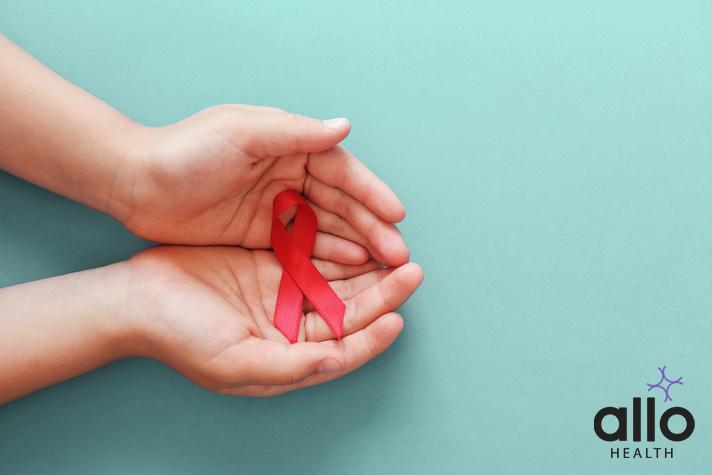What Are The Symptoms And Complications Of HIV?

"The following blog article provides general information and insights on various topics. However, it is important to note that the information presented is not intended as professional advice in any specific field or area. The content of this blog is for general educational and informational purposes only.
Book consultation
The content should not be interpreted as endorsement, recommendation, or guarantee of any product, service, or information mentioned. Readers are solely responsible for the decisions and actions they take based on the information provided in this blog. It is essential to exercise individual judgment, critical thinking, and personal responsibility when applying or implementing any information or suggestions discussed in the blog."
HIV, or Human Immunodeficiency Virus, is a virus that attacks the immune system, specifically targeting CD 4 cells (T cells), which play a crucial role in fighting off infections. If left untreated, HIV can lead to a severe condition called AIDS (Acquired Immunodeficiency Syndrome), where the immune system becomes severely compromised. Understanding the symptoms and potential complications of HIV is crucial for early detection, management, and treatment.
Symptoms of HIV
- Acute HIV Infection: This phase occurs within the first few weeks after contracting the virus. Symptoms during this stage, often referred to as acute retroviral syndrome (ARS) or primary HIV infection, may resemble those of the flu or other viral infections. Common symptoms include:
- Fever
- Fatigue
- Muscle aches
- Swollen lymph nodes
- Sore throat
- Rash
- Mouth sores
- Headache
- Clinical Latency Stage: After the initial acute infection, HIV can enter a period of clinical latency, where the virus replicates at a low level. During this stage, which can last for years, many people may not experience any symptoms. However, HIV is still active and continues to damage the immune system.
- Symptomatic HIV Infection: As HIV progresses and the immune system weakens, symptoms may start to appear again. These symptoms can vary widely and may include:
- Persistent fever
- Night sweats
- Fatigue
- Swollen lymph nodes
- Weight loss
- Diarrhoea
- Persistent cough
- Skin problems, such as rashes, lesions, or sores

Complications of HIV
- AIDS (Acquired Immunodeficiency Syndrome): Without treatment, HIV can progress to AIDS. AIDS is diagnosed when the immune system is severely compromised, as indicated by a low CD 4 cell count (below 200 cells/mm³) or the occurrence of specific opportunistic infections or cancers. AIDS is the most severe stage of HIV infection and significantly increases the risk of life-threatening infections and illnesses.
- Opportunistic Infections: HIV weakens the immune system, making individuals more susceptible to opportunistic infections. These infections are caused by organisms that usually do not cause illness in people with healthy immune systems but can be severe in individuals with HIV/AIDS. Some common opportunistic infections include:
- Tuberculosis (TB)
- Pneumocystis pneumonia (PCP)
- Candidiasis (thrush)
- Cryptococcal meningitis
- Cytomegalovirus (CMV) infection
- Toxoplasmosis
- Cryptosporidiosis
- HIV-Associated Cancers: People living with HIV have an increased risk of certain cancers compared to the general population.
 These cancers can include:
These cancers can include:
- Kaposi’s sarcoma
- Non-Hodgkin lymphoma
- Invasive cervical cancer
- Anal cancer
- Lung cancer
- Hodgkin lymphoma
- Neurological Complications: HIV can affect the nervous system, leading to various neurological complications, such as:
- HIV-associated neurocognitive disorders (HAND)
- Peripheral neuropathy
- Meningitis
- Encephalitis
- Stroke
- Cardiovascular Disease: People with HIV have a higher risk of cardiovascular disease, including heart attacks and strokes. This increased risk is partly due to the chronic inflammation and metabolic changes associated with HIV infection.
- Kidney Disease: HIV-associated kidney disease can occur, leading to impaired kidney function and potential complications such as chronic kidney disease and end-stage renal disease.
- HIV/AIDS-Related Wasting Syndrome: Some individuals with advanced HIV/AIDS may experience a condition called wasting syndrome, characterised by significant weight loss, muscle wasting, weakness, and fatigue.
Recognising the symptoms of HIV and understanding its potential complications are essential for early diagnosis, treatment initiation, and management. Timely medical intervention, including antiretroviral therapy (ART) and preventive measures against opportunistic infections, can significantly improve the quality of life and prognosis for individuals living with HIV. Regular monitoring of CD 4 cell counts, viral load, and overall health status is critical in managing HIV infection and preventing the progression to AIDS and its associated complications.









































